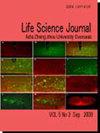Effect of Combat Vehicle Operation on Cognitive Workload and Performance
引用次数: 0
Abstract
Multifaceted stress factors related to infantry combat vehicle (ICV) operation may be considered as major a source of cognitive workload, which may significantly impact the performance of infantry soldiers. The available literature on the effect of ICV’s operational environment on soldier’s cognitive workload is scanty or mostly unreported. The present study was designed to observe the effect of ICV operation on the i) cognitive workload ii) cognitive performance and iii) to study the association between cognitive workload and performance. Thirty soldiers [mean(SD)age: 31.86(2.9) years, weight: 74.40(7.7) kg, and height: 171.33(3.42) cm] volunteered for this study. Their heart rate (HR), heart rate variability (HRV) and respiratory frequency (RF) were recorded at three time points 00th-05th, 25th-30th and 55th-60th minute during the ICV operation. ‘A’ letter cancellation task (ALCT) was conducted to assess cognitive performance, before and after ICV operation. The internal temperature and relative humidity (RH) of ICV were assessed at same three time-points. Repeated measure ANOVA and Wilcoxon signed ranks test were conducted to observe significant changes in HR, HRV, RF, and cognitive performance. Association between HRV and ALCT was assessed using Pearson’s bivariate correlation. Changes were considered significant when p-value was ≤ 0.05. Significant increase in the HR and RF were observed along with significant decrease in both time and frequency domain of HRV after ICV operation. Similarly, ALCT showed a significant increase in the total and net score, and an increased error score in post-ICV operation. A strong positive correlation was observed between the ICV operation run-trial time and the increasing compartmental temperature (r=0.99) and RH (r=0.89). HRV components showed a negative correlation with ALCT measures. One hour of ICV operation resulted in increased cognitive workload and a significant decrease in the cognitive task performance. Internal temperature and RH of ICV are potential physical stress factors affecting the soldier’s workload and performance.战车操作对认知工作量和性能的影响
与步兵战车(ICV)操作相关的多方面应激因素可能被认为是认知工作量的主要来源,这可能会显著影响步兵的表现。关于ICV作战环境对士兵认知工作量影响的现有文献很少或大多未报告。本研究旨在观察ICV手术对i)认知工作量ii)认知表现和iii)认知工作量与表现之间的关系的影响。30名士兵[平均(SD)年龄:31.86(2.9)岁,体重:74.40(7.7)公斤,身高:171.33(3.42)厘米]自愿参加本研究。他们的心率(HR)、心率变异性(HRV)和呼吸频率(RF)在ICV手术期间的第00至05分钟、第25至30分钟和第55至60分钟三个时间点进行记录在ICV手术前后,进行了一项“信件取消任务”(ALCT)来评估认知表现。在相同的三个时间点对ICV的内部温度和相对湿度(RH)进行了评估。进行重复测量方差分析和Wilcoxon符号秩检验,观察HR、HRV、RF和认知表现的显著变化。HRV和ALCT之间的相关性使用Pearson的双变量相关性进行评估。当p值≤0.05时,变化被认为是显著的。ICV手术后HR和RF显著增加,HRV时域和频域显著下降。同样,ALCT显示总得分和净得分显著增加,ICV手术后的错误得分增加。ICV运行试验时间与室间温度升高(r=0.99)和相对湿度升高(r=0.89)呈正相关。HRV成分与ALCT测量呈负相关。ICV操作一小时导致认知工作量增加,认知任务表现显著下降。ICV的内部温度和相对湿度是影响士兵工作量和性能的潜在物理应激因素。
本文章由计算机程序翻译,如有差异,请以英文原文为准。
求助全文
约1分钟内获得全文
求助全文
来源期刊
自引率
0.00%
发文量
0
审稿时长
2-4 weeks
期刊介绍:
Life Science Journal, the Acta Zhengzhou University Oversea Version, is an international journal with the purpose to enhance our natural and scientific knowledge dissemination in the world under the free opinion/idea publishing principle. The journal is calling for papers from all the world. All the valuable papers or reports that are related to life sciences - in their broadest sense - are welcome. Other academic articles that are only certain relevant but are of high quality will also be considered and published. Papers submitted could be reviews, objective descriptions, research reports, opinions/debates, news, letters, and other types of writings. All submitted manuscripts will be sent for external peer review and processed the editorial work. After the peer review, the journal will make the best efforts to publish the accepted valuable articles as soon as possible. Let''s work together to disseminate our research results and our opinions/ideas.

 求助内容:
求助内容: 应助结果提醒方式:
应助结果提醒方式:


